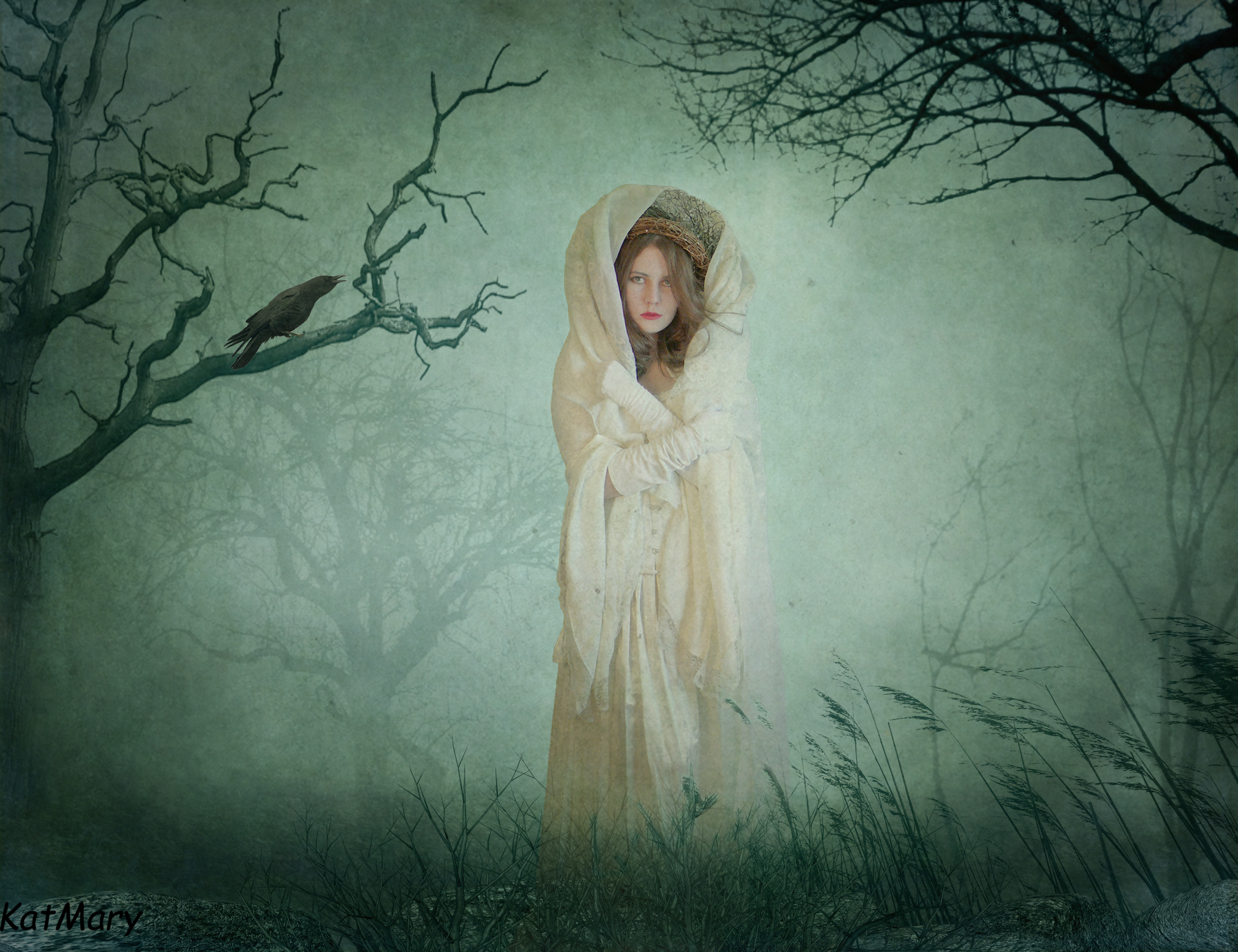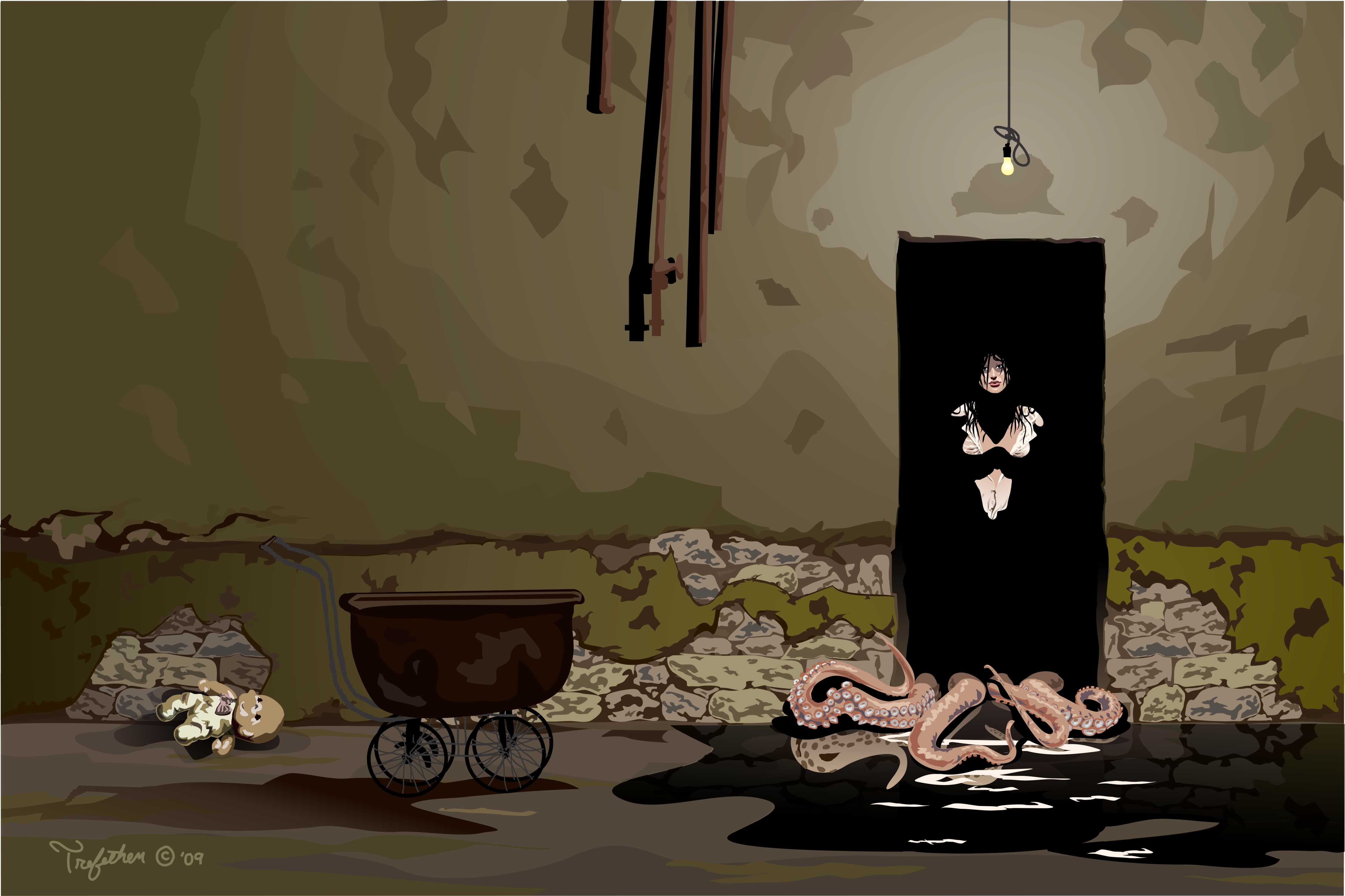The following is a list of corruptions. Most are illnesses or diseases of a mental or spiritual nature and such traits are generally acquired through the insanity mechanics. Some of these can make the tone of the game very dark and depressing, so handle with care and feel free to make up new ones.
Anxiety
In game terms, anxiety differs from phobia in being general. This can include the general effects of post traumatic stress disorder.
Levels
For every level of anxiety, the character takes a -1 penalty on willpower checks to resist fear.
Depression
Something in the past is making the character depressed. The following is a suggestion of how depression might affect a character. GMs and players should feel free to adjust this as they see fit.
Levels
- Addiction – the character starts focusing on some passive addiction, like food or drugs
- Lethargy – the character lacks motivation to do anything but sleep
- Emotionally void – The character takes a -1 to all social rolls as she becomes careless, emotionally dead and less able to empathize with others.
- Suicidal – the character will want to kill herself
- Apathy – life has lost all purpose and the character no longer cares
Fade away
The character is gradually forgetting who she is, eventually losing all self- and consciousness. She may repeat obsessive behaviours without any longer knowing why.
Tip : Suitable for ghost characters
Levels
When a character takes Fade Away, she must successfully check willpower in order to remember anything about herself, such as her name or some specific event from her past. For every level in Fade Away, the character gets a -1 to this roll.
Special : Ghost characters additionally receive a -1 penalty to charisma and intelligence for each level of Fade Away.
Feytouched
The character has been in close contact with fey, perhaps having been kidnapped or otherwise under their influence.
- Allure – the character tends to draw the attention of fey creatures.
- Susceptible – the character gets a -1 to resist faerie illusions and glamour.
- Muddled – the character occasionally sees what she believes to be creatures or features from the faerie world (whether real or not). This distracts her (typically at the worst moment) and may make her seem psychotic.
- Enchanted – the character gets a -2 to resist faerie illusions and glamour.
- Down the rabbit hole – the character loses touch with the real world and must generally succeed on a willpower roll to respond to any real going-ons, such as cohesively answering a question. However, she can see and communicate with faerie perfectly.
Ghost-touched
The player has been in close contact with a ghost, perhaps having been possessed.
Levels
- Dead hands – The character’s extremities turn colder.
- Deathly pallor – the characters skin tone changes to an unhealthy, pale complexion.
- Ghostly whispers – The character often hears ghostly whispers (real or not), increasing the difficulty of any mental task with 1.
- Cotard – The character consciously or unconsciously believes she is already dead. She no longer feels thirst or hunger, fear or any reason to defend her body from damage.
- Sixth sense – The character (believes she) can see dead people and becomes increasingly out of touch with the “real world”.

Ghostly possession
The character is being targetted for possession by a ghost. In gameplay terms, this generally means that a ghost is harassing the character, resulting in lower willpower and easier possession. The ghost has its own set of motivations, skills and powers, possibly supernatural, and the GM should keep tabs of these.
Possessed : The character can check willpower to avoid being possessed and sometimes also to break possession. When a character becomes possessed, the ghost takes over her body. It may or may not have access to its hosts memories (GM’s choice), helping it to further torment its victim and to pose as the character it possesses.
At the GM’s discretion, situations may occur allowing the possessed victim to regain control of her body with a successful willpower roll.
Levels
Every level of possession grants the character a -1 to willpower checks to resist possession. In addition, the following conditions apply at the indicated levels:
- Stalked – The character may notice sudden changes in temperature, weird sounds just beyond the edge of hearing, a feeling of being watched and other subtle signs that she is being stalked by a ghost
- Night terrors – The character suffers horrible nightmares about the ghost and sometimes wakes up with bruises, seemingly having been physically attacked during the night
- Ridden – The subtle signs have become less subtle; ghostly whispers, moving shadows and strange illusions, markings on walls, etc. The ghost may try to physically hurt its victim.
- Isolation – The ghost constantly clings to the charater. It may manifest physically and also tends to attack its victim and others she comes into contact with, seeking to socially isolate the character.
- Possessed – Once the ghost now possesses its victim, exorcism is generally the only way to get rid of it
Monster
The character is becoming increasingly monstrous. Her monstrosity develops as a separate personality or entity which progressively takes over the character’s life.
Taking monster makes a character go through periods of extreme disassociation called Monstrous where the monster personality is in control. At the GM’s discretion, the character may be handled as an NPC during this time.
Monstrous : When a character becomes monstrous, she forgets who she is and cares only for satisfying primal urges such as fight, flight, sexual desire or hunger. Her visage turns (more) monstrous.
At the GM’s discretion, a powerful reminder of who she is may allow the afflicted character to take a willpower roll to lose her monstrous status. Otherwise, the monstrous condition tends to lose hold once the character has satisfied her urge and is in a quiet place or is completely worn out from exertion.
Tip : Monster is suitable for either monstrous characters like werewolves, vampires or ghosts or for human characters suffering from other corruptions.
Levels
For each level of monster, strength, endurance and agility increases with 1 while monstrous while charisma suffers a cumulative penalty of -1 (to a minimum of 0).
For each level of monster, the character receives a cumulative -1 penalty to willpower rolls to avoid becoming monstrous.
In addition to these general effects, the following conditions apply at the indicated levels:
- Fight or flight – In threatening situations, the character must successfully check willpower or become Monstrous
- Bloodlust – When monstrous, the character enjoys the sight and/or taste of raw flesh and blood. At any sight of blood, the character must successfully check willpower or become monstrous.
- Threat – When monstrous, the character feels an urge to kill and must check willpower to successfully separate friends from foes
- Mr. Hyde – Almost any stimulus can trigger the monstrous condition (check to resist). If appropriate, the monster side of a character may take over when she sleeps.
- Monster – The monster side has completely taken over and the character is considered a monster.
Paranoia
A paranoid character is, increasingly, under the delusion that hidden forces in the world are out to get them. As paranoia develops, the character becomes increasingly distrustful of others. And – as they say – even though you are paranoid, it doesn’t mean they’re not out to get you.
Levels
- Distrust – the paranoid character is generally distrustful of others and tends to see malicious intent where there is none
- Conspiracy – the paranoid character believes in and is increasingly interested in some hidden, sinister conspiracy
- Forbidden knowledge – The character knows too much and believes hidden forces are out to get her. She becomes increasingly distrustful of others, particularly authorities or people in power (ex. doctors, lawyers, politicians, police).
- They’re listening – The character believes she is somehow under surveillance, perhaps by cameras in the streetlights or from being listened to by the microscopic microphone in her latest tooth filling. She suspects anyone, also friends and family, of working for “them” and gaining the character’s trust requires real convincing.
- Delusional – the character believes herself to be a victim of the conspiracy and may have delusions that she has been operated on, abducted, having had her memories altered after being forced to kill someone, etc. Delusions tend to be very elaborate at this point.
Phobia
Whenever a character with a phobia encounters the subject of her phobia, she must make a willpower check to resist fear.
Levels
Every level of phobia gives adds -1 to willpower checks to resist fear caused by the subject of the phobia and also adds an additional +1 to the fear the subject would otherwise cause.
Ex. a level 5 phobia from unboiled spaghetti would generally make spaghetti cause 5 fear damage (0 because it is harmless +5 because of phobia) and resisting this fear would be done with a successful willpower check at a -5 modifier.
Planetouched
The character has had a close encounter with an alien or otherwordly being and develops a peculiar sickness as a result.
Before giving this disorder to a character, the GM should keep track of what sort of creature it is the character has been in contact with.
- Follower – the character becomes susceptible to the influence and receives a -1 to any roll to resist direct mental or emotional manipulation or control by the outsiders.
- Chosen – through dreams, visions and the like, the character sometimes receive tasks and missions from the outsiders (whether real or imaginary). Ignoring them requires mental effort.
- Tainted – the character develops some unflattering physical trait evident of her connection with the outsiders and gains a circumstantial penalty of -2 to charisma when dealing with other people (but possibly, the trait could be useful). Examples : loses hair, webbed fingers, oily skin, bulging eyes, sharp teeth.
- Morphling – the character takes on further physical characteristics of the creature it’s been in contact with. The GM and player work out the details together.
- monsterOutsider – the character turns into an outsider monster. Depending on whether or not the GM will let a player play a monster, this could be the end of the character as a playable character.

Psychopathy
The character loses emotions like fear and guilt and becomes increasingly egotistical. In game terms, psychopathy helps resist fear, but another consequence is a loss of humanity/empathy which largely has to be roleplayed.
Levels
For every level of psychopathy, the character gains:
- +1 to willpower rolls to resist fear or other emotions
- -1 to checks that require real empathy from the character